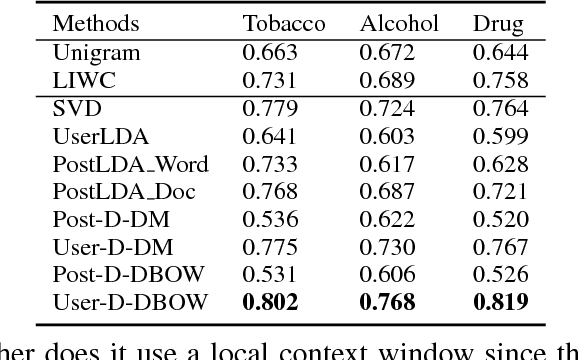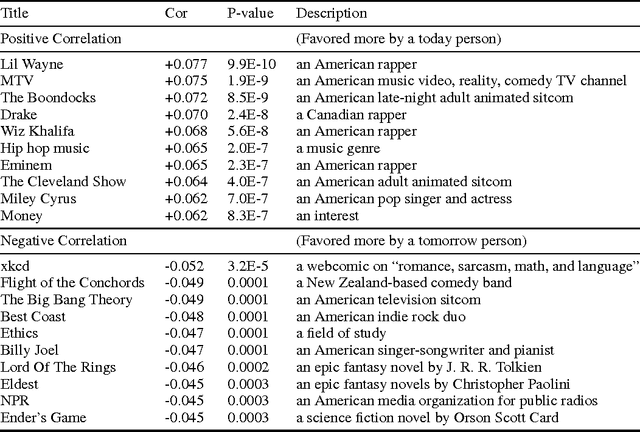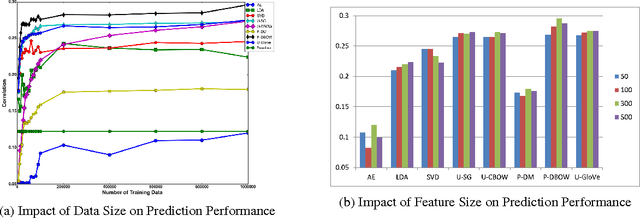Warren K. Bickel
Social Media-based Substance Use Prediction
May 31, 2017



Abstract:In this paper, we demonstrate how the state-of-the-art machine learning and text mining techniques can be used to build effective social media-based substance use detection systems. Since a substance use ground truth is difficult to obtain on a large scale, to maximize system performance, we explore different feature learning methods to take advantage of a large amount of unsupervised social media data. We also demonstrate the benefit of using multi-view unsupervised feature learning to combine heterogeneous user information such as Facebook `"likes" and "status updates" to enhance system performance. Based on our evaluation, our best models achieved 86% AUC for predicting tobacco use, 81% for alcohol use and 84% for drug use, all of which significantly outperformed existing methods. Our investigation has also uncovered interesting relations between a user's social media behavior (e.g., word usage) and substance use.
\$1 Today or \$2 Tomorrow? The Answer is in Your Facebook Likes
Mar 24, 2017



Abstract:In economics and psychology, delay discounting is often used to characterize how individuals choose between a smaller immediate reward and a larger delayed reward. People with higher delay discounting rate (DDR) often choose smaller but more immediate rewards (a "today person"). In contrast, people with a lower discounting rate often choose a larger future rewards (a "tomorrow person"). Since the ability to modulate the desire of immediate gratification for long term rewards plays an important role in our decision-making, the lower discounting rate often predicts better social, academic and health outcomes. In contrast, the higher discounting rate is often associated with problematic behaviors such as alcohol/drug abuse, pathological gambling and credit card default. Thus, research on understanding and moderating delay discounting has the potential to produce substantial societal benefits.
 Add to Chrome
Add to Chrome Add to Firefox
Add to Firefox Add to Edge
Add to Edge